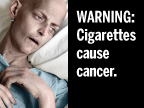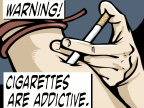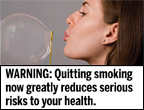December 5th, 2010 by GarySchwitzer in Better Health Network, Health Policy, News, Opinion, Research
No Comments »

Interesting case study raised by the Retraction Watch blog.
A 2009 journal article in the Proceedings of the National Academy of Sciences (PNAS) — promoted in a news release by the journal and picked up by many news organizations — has now been retracted by the authors. But the journal issued no news release about the retraction — an issue of transparency that the RW blog raises. And you can guess how much news coverage the retraction will get.
And this was all over a molecule that could supposedly “make breast tumors respond to a drug to which they’re not normally susceptible” — as the RW blog put it. But it was also a molecule, RW points out, that wasn’t even in clinical trials yet.
He or she who lives by the journal news release risks one’s long-term credibility.
*This blog post was originally published at Gary Schwitzer's HealthNewsReview Blog*
December 4th, 2010 by Elaine Schattner, M.D. in Better Health Network, Health Tips, Opinion, True Stories
1 Comment »

To complain or “be good” is an apparent dilemma for some patients with serious illness.
Yesterday I received an email from a close friend with advanced breast cancer. She’s got a lot of symptoms: Her fatigue is so overwhelming she can’t do more than one activity each day. Yesterday, for example, she stayed home all day and did nothing because she was supposed to watch a hockey game in the evening with her teenage son and other family members. Her voice is weak, so much it’s hard to talk on the phone. She has difficulty writing, in the manual sense — meaning she can’t quite use her right arm and hand properly.
“It’s something I would never mention to the doctor because it is very subtle,” she wrote. “But it has not improved and if anything has worsened over time.”
There are more than a few possible medical explanations for why a person who’s receiving breast cancer therapy might not be able to use her right arm. But that’s not the point of today’s lesson. What’s noteworthy here is that the patient — an educated, thoughtful woman who’s in what should be the middle of her life and is trying as best she can to survive — doesn’t think these symptoms are worth mentioning. Read more »
*This blog post was originally published at Medical Lessons*
November 16th, 2010 by Peggy Polaneczky, M.D. in Better Health Network, Health Tips, News, Opinion, Research
No Comments »


A new analysis of long-term data from the Women’s Health Initiative confirms what we already knew the first time around: Use of combination hormone replacement (HRT*) is associated with a small, but real, risk of breast cancer. This new 11-year followup data carries that knowledge out to its not unexpected conclusion — namely, that some (although not most) breast cancers can be fatal, and therefore the the use of HRT can increase breast cancer mortality.
While it may seem a bit of a “duh,” this study was, in fact, necessary to quell the WHI critics who continued to argue that the breast cancers caused by HRT were somehow less aggressive than those occurring off HRT (which they are not.) It was also a wake-up call for many women who were continuing to use HRT and thinking that somehow its risks did not apply to them. A fair number of these women appear to be coming off of HRT, at least in my practice. Others are staying the course and accepting the risks as they have been defined. Either of which is fine with me.
The spin going on around this study — both for and against HRT use — is tremendous and ultimately confusing to women. The pro-HRT crowd (some of whom have relationships to Pharma) is using language like: “The increased risk from using HRT for five years is the same as if your menopause occurred five years later,” which is technically true, but so what? The bioidentical hormone crowd (usually also selling the same) are using the study to further hype how their regimens are safer than the evil Big Pharma products — based on no data. Which leaves the rest of us to try to find ways to help our patients understand the risks, place them into perspective for themselves, and make a decision about how and if to treat their menopausal symptoms. Read more »
*This blog post was originally published at tbtam*
November 15th, 2010 by GarySchwitzer in Better Health Network, Health Policy, News, Opinion
No Comments »

Last week, after the National Lung Screening Trial results were released, David Sampson, American Cancer Society director of medical and scientific communications, wrote that “our greatest fear was that forces with an economic interest in the test would sidestep the scientific process and use the release of the data to start promoting CT scans. Frankly, even we are surprised how quickly that has happened.”
And, yes, the marketing has even hit fly-over country in the Twin Cities, with this ad appearing in the Sunday Minneapolis Star Tribune in the “A” section:

Of course, no where in the ad will you read about the potential harms of such scans, the false positive rate, what happens when you get a false positive (unnecessary followup testing and perhaps unnecessary treatment), and more costs. And nowhere in the ad will you read that 300 heavy smokers had to be scanned in order for just one to get a benefit of extending his life. But six clinics in this chain are standing by to take your money and do your scan.
*This blog post was originally published at Gary Schwitzer's HealthNewsReview Blog*
November 14th, 2010 by DrWes in Better Health Network, Health Policy, Health Tips, Medical Art, News, Opinion
No Comments »

 The FDA will soon require new cigarette package labeling to deter smoking. So in politically-correct governmental fashion, they are asking which labels you’d like to see. (You can pick your favorites here.) My personal favorite (so far) is the one shown to the left, but its impact factor pales in comparison to this example found in England. (That, my friends, is cancer!)
The FDA will soon require new cigarette package labeling to deter smoking. So in politically-correct governmental fashion, they are asking which labels you’d like to see. (You can pick your favorites here.) My personal favorite (so far) is the one shown to the left, but its impact factor pales in comparison to this example found in England. (That, my friends, is cancer!)
 Ironically, it appears the FDA isn’t too sure how forceful it should be in these warnings about the dangers of smoking. They offer a cornucopia of milquetoast labeling options, many of which contain cartoons. Might such unrealistic portrayals defy they hard-hitting message they want to project? Worse, at least one cartoon (seen here) even seems to promote cigarettes AND drug use together!
Ironically, it appears the FDA isn’t too sure how forceful it should be in these warnings about the dangers of smoking. They offer a cornucopia of milquetoast labeling options, many of which contain cartoons. Might such unrealistic portrayals defy they hard-hitting message they want to project? Worse, at least one cartoon (seen here) even seems to promote cigarettes AND drug use together!
 In an even more astonishing example, some images almost make me what to take up smoking so I can blow big bubbles. Since I could never do this well before, maybe I should take up smoking! Seriously, is an empowerment message what the government wants to portray?
In an even more astonishing example, some images almost make me what to take up smoking so I can blow big bubbles. Since I could never do this well before, maybe I should take up smoking! Seriously, is an empowerment message what the government wants to portray?
Make these labels big, ugly, and real. Anything else is a waste of taxpayer’s money.
-WesMusings of a cardiologist and cardiac electrophysiologist.
*This blog post was originally published at Dr. Wes*



















